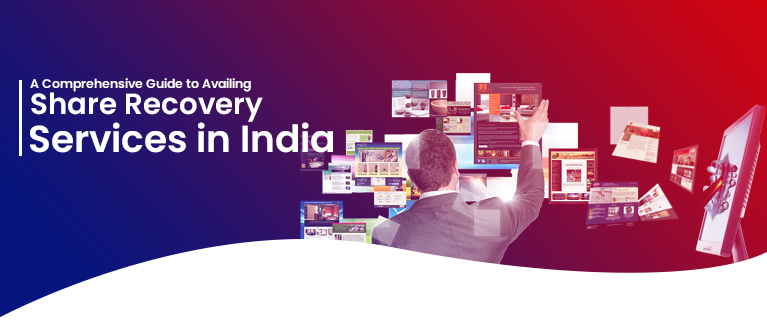Top Reasons for Share Buyback
Can a company take back shares?
Many businesses, particularly those in the technology industry, have announced share buybacks. Companies may decide to do a share repurchase for a variety of reasons. They can include the need for greater money in financial operations for various reasons. They are as diverse as the companies themselves. The procedure by which a firm purchases its own listed or unlisted shares from shareholders for any reason is known as a buyback of shares. Legalraasta can assist you in quickly and affordably claiming shares from the iepf.
Read also this -: How do you recover from 50% Stock LossWhat is share back?
When a corporation buys back shares, it indicates it is purchasing its stock: A business must cancel the shares it has purchased back while doing so. As a result, the company's share capital decreases as a result of share buybacks. A firm is not permitted to invest in its own stock. If a firm has enough cash, it may elect to purchase its shares. So, if you want to claim shares from the iepf, a legal counsel can also help.
What are the Reasons for Share Buyback?
Buying back shares is a common option for companies with extra cash and no fresh expansion plans to reduce liquidity, especially when the market is rising. These businesses typically have strong financial fundamentals, and instead of holding the additional money in bank accounts, they use it to buy back the outstanding shares on the market, which can raise the price of the already-traded shares. Thus, you can speak with our legalraasta specialist advisor about claiming shares from the iepf.
1)Tax Benefits: All proceeds from a share buyback exercise are referred to as buyback income, which is not taxed (unlike stock buybacks) and you can consult a Legalraasta expert to claim shares from an iepf.
2)Shows the Profitability of the Company: If a firm chooses to repurchase shares, its Earnings per Share (EPS) rises, increasing the market value of the outstanding shares and boosting investor confidence.
3)Share Consolidation: Managing a company's multiple shareholder groups can be challenging when there are too many of them. Decision-making delays and power disputes may result from it. All of these could impair the promoter group's ability to operate effectively. You can speak with us about claiming shares from the iepf.
4)Plenty of money, but few lucrative opportunities: Keeping a lot of money in the bank has a cost, thus it would be wiser to return it to the shareholders. Even though they have substantial amounts of extra income, they choose not to buy back shares because they already have continuing investments they can utilize the extra money for.
Unfortunately, the majority of IT companies use established business models, and there isn't much money available to spend on brand-new initiatives. They do not need to put their extra money into new projects because their processes are already established. A major justification for the share buyback is that there is too much cash on hand and not enough investment opportunity. Legalraasta will also assist in claiming shares from the Iepf.
5)Company's stock is undervalued: The company's management may believe its stock is undervalued because it is confident enough to use its reserves to repurchase its shares. In these conditions, it might be a good idea for the business to repurchase the stock and announce the bottoming of the market. Connect with us to claim shares from the iepf.
6)Returns cash to the company's shareholders: Many businesses diversified into unrelated industries simply because they had plenty of money. Returning the cash to shareholders and letting them determine what to do with the extra funds may be a better alternative. In addition to being a smart move for shareholders, organizations that have too much cash on hand and intend to spend it in ventures unrelated to their core business operations run the risk of underachieving the performance targets they set for both their new ventures and existing operations. When a linked business underperforms, it affects the primary firm that was previously profitable.
7)Promoters to increase their stake in the business: Promoters occasionally worry that their ownership of a business will fall below a specific threshold. Until a company goes public, the majority of its stock is held by its promoters or founders. At that point, a sizable portion of its shares is made available to the general public for purchase. When a firm attempts to acquire another company, a buyback is an offer that the shareholders have the option of accepting or rejecting. If accepted, the offer results in the shareholders receiving cash or the opportunity to grow their ownership in the company. So join us as we claim shares from the iepf.
8)Consolidate Control Over Company: More shareholders lead to disagreements and share voting conflicts that slow down the company's ability to make decisions unanimously. This problem will be resolved by stronger management, which will also shield the business from potential hostile takeovers.
9)Changing Capital Structure: A company's capital structure is indicated by its debt-to-equity ratio. Each industry has a unique capital structure. Some businesses cannot take on additional debt to operate, while others must rely heavily on debt. These latter businesses may choose to engage in buybacks to achieve the ideal capital structure.
Following are the benefits of share buybacks:● increases stock price and reduces the cost of undervalued stocks.
● increases return on equity, return on assets, and earnings per share.
● reduces capital without obtaining National Company Law Tribunal consent
● optimizes a company's capital structure
● protection from aggressive takeovers.
● Exit strategy for investors at a premium to the market value.
● utilizes unpaid money
● Checks for a business's financial standing and level of liquidity permit buybacks.
Read also this -: Reclaim Reliance Industries shares from IEPF Authority



Comments
Post a Comment